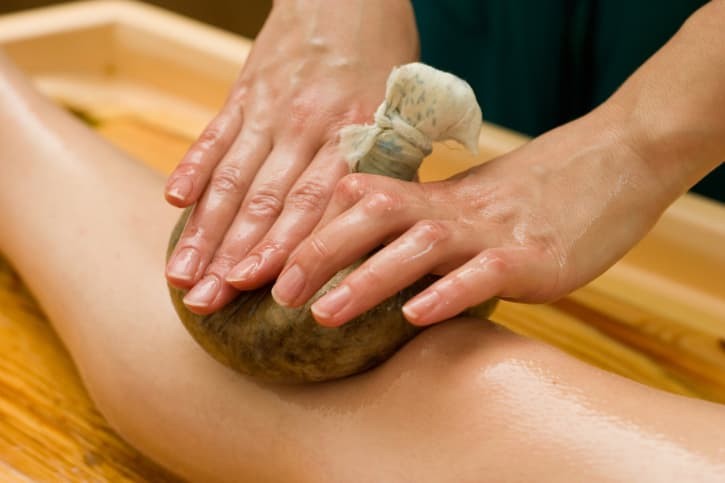
Do you like the idea of helping people re-balance their body and experience optimum health and wellbeing? Working as an Ayurveda practitioner can be incredibly rewarding as it allows you to assist your clients in achieving a healthy life.
What is Ayurveda?
Ayurveda is an ancient system of medicine, which means the science of life in Sanskrit. It originated in India more than 5000 years ago and has since spread around the world as a powerful and effective healing therapy. Ayurvedic medicine focuses on natural solutions, such as herbal remedies, meditation, diet, lifestyle advice and Ayurvedic bodywork therapies, rather than suppressing symptoms with pharmaceutical products.
The Ayurvedic practice believes that health problems are caused by an imbalance between these three doshas or constitutional types: vata, pitta and kapha (air, fire and water). Ayurvedic treatments mainly aim to re-balance these energies so as to prevent illness. Ayurveda is known to be highly effective in the treatment of a wide range of conditions, including:
- Diabetes
- Arthritis
- Respiratory problems
- Inflammation
- Hypertension
- Eczema
- Digestive issues
- Stress
- Anxiety
- Allergies
- Fatigue
Ayurveda Course Options
There are many Ayurveda courses available in Australia, covering a range of natural therapy topics, including Ayurvedic massage, herbal remedies and Ayurvedic lifestyle assessments, to name a few. By pursuing educational programs in Ayurveda, you can develop a holistic understanding of health and the various treatments that Ayurveda entails. You're likely to study herbal medicine, remedial massage, Indian head massage, Ayurvedic aromatherapy and a whole range of other subjects.
Many providers offer online and distance courses, to allow you to study in your own time and fit the course around your other commitments. In order to become a qualified practitioner of Ayurveda, you can choose a short course, certificate or diploma qualification.
A Diploma of Ayurveda is ideal if you're interested in working as an Ayurvedic lifestyle consultant. You will learn the basic Ayurvedic principles, including how a person's body type influences their diet and susceptibility to illness, as well as how to use different types of Ayurvedic products.
If you're looking to pursue a wider scope of practice as an Ayurvedic practitioner, you need to undertake an Advanced Diploma of Ayurveda. Besides providing more comprehensive Ayurvedic knowledge in the classroom or online, this course also includes clinical training under the supervision of a qualified Ayurvedic doctor. In addition to engaging in the professional practice of Ayurveda, you can use your qualification to get advanced standing in bachelor's degree programs.
Choosing an Ayurveda Course
The first step in finding the right course is to identify your educational goals and career objectives. Do you want to become an Ayurvedic health consultant, a medical officer in an Ayurvedic hospital, a clinical trial coordinator for various Ayurvedic medicines, or specialise in Ayurvedic dietetics?
The Ayurvedic approach you learn in school depends on the course's nature and length, so you have to be explicit about your learning goals. Take the time to check the contents of a specific Ayurvedic studies program and compare it with others in order to land a program that fits your interests.
Comparing training providers is a good way to get started with your studies. You can find an Ayurveda college and course that suits your schedule and goals with our comprehensive list of course providers in Australia.
Ensure you ask each provider the following:
- Is the provider a Recognised Training Organisation?
- Is the course accredited?
- Can you study via distance or at your own pace?
- How are the learning materials delivered?
- What is the total course cost, including examinations (if relevant)?
- Are your courses affiliated with any associations?
Once you find a course you like, you're one step closer to becoming an Ayurveda practitioner. Good luck!
Originally published on Jan 18, 2013



